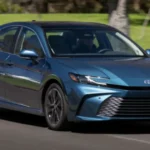Toyota Motor Corporation, founded in 1937, has grown from a small Japanese company into one of the largest and most influential automakers in the world. Over the past century, Toyota has been at the forefront of automotive innovation, consistently pushing the boundaries of what is possible in the industry. This article explores Toyota’s journey, highlighting key milestones and innovations that have defined its growth.
Early Beginnings
Toyota’s story begins with Sakichi Toyoda, an inventor who founded Toyoda Automatic Loom Works in 1926. His son, Kiichiro Toyoda, carried forward his father’s legacy of innovation by establishing Toyota Motor Corporation. The company’s first passenger car, the Model AA, was introduced in 1936, setting the stage for Toyota’s future success in the automotive market.
Post-War Expansion
After World War II, Toyota faced numerous challenges, including economic hardships and material shortages. However, the company persevered, introducing the Toyopet SA in 1947. By the 1950s, Toyota began exporting vehicles to the United States, marking the start of its global expansion. The introduction of the Toyota Land Cruiser in 1951 and the Toyota Crown in 1955 solidified the brand’s reputation for producing reliable and durable vehicles.
The Birth of the Toyota Production System
One of Toyota’s most significant contributions to the automotive industry is the Toyota Production System (TPS). Developed in the 1950s and 1960s, TPS revolutionized manufacturing by emphasizing efficiency, quality, and waste reduction. The principles of TPS, such as Just-in-Time (JIT) production and Jidoka (automation with a human touch), have been adopted by companies worldwide, setting new standards for manufacturing excellence.
Innovation in the 21st Century
Toyota’s commitment to innovation has driven the company to explore new technologies and market trends. In 1997, Toyota launched the Prius, the world’s first mass-produced hybrid car. The Prius set a new standard for fuel efficiency and environmental consciousness, paving the way for the development of electric and hybrid vehicles across the industry.
In recent years, Toyota has continued to invest in alternative fuel technologies, including hydrogen fuel cells. The Toyota Mirai, introduced in 2014, is one of the world’s first hydrogen fuel cell vehicles, representing a significant step towards a sustainable automotive future.
Global Impact and Market Leadership
Toyota’s dedication to quality and innovation has earned it a loyal customer base and a strong global presence. The company’s diverse product lineup, ranging from compact cars to luxury vehicles and commercial trucks, meets the needs of a wide range of consumers. Toyota consistently ranks among the top automakers in global sales, reflecting its ability to adapt to changing market demands and consumer preferences.
Commitment to Sustainability
As the automotive industry moves towards a more sustainable future, Toyota remains at the forefront of this transformation. The company’s Environmental Challenge 2050 outlines ambitious goals to reduce its environmental footprint, including lowering CO2 emissions and promoting the use of renewable energy. Toyota’s focus on sustainability extends beyond its vehicles to its manufacturing processes, aiming to create a positive impact on the planet.
Embracing the Future
Toyota’s journey over the past century is a testament to its resilience, adaptability, and unwavering commitment to innovation. As the company looks to the future, it continues to explore new frontiers in automotive technology, from autonomous driving to connected vehicles. Toyota’s vision is not just to be a car manufacturer but to be a mobility company that enhances the way people live and move.
Conclusion
Toyota Motor Corporation’s century-long journey is marked by continuous growth and groundbreaking innovation. From its humble beginnings to becoming a global leader in the automotive industry, Toyota’s success is driven by its dedication to quality, efficiency, and sustainability. As Toyota continues to innovate and adapt, it remains poised to shape the future of mobility for generations to come.
Sure, here are seven concise FAQs about Toyota Motor Corporation:
FAQs about Toyota Motor Corporation
1. When was Toyota Motor Corporation founded?
- Toyota Motor Corporation was founded on August 28, 1937.
2. What was the first car produced by Toyota?
- The first passenger car produced by Toyota was the Model AA, introduced in 1936.
3. What is the Toyota Production System (TPS)?
- The Toyota Production System (TPS) is a manufacturing methodology that emphasizes efficiency, quality, and waste reduction.
4. What is the significance of the Toyota Prius?
- Launched in 1997, the Toyota Prius is the world’s first mass-produced hybrid car, setting a new standard for fuel efficiency and environmental consciousness.
5. What is the Toyota Mirai?
- The Toyota Mirai, introduced in 2014, is one of the world’s first hydrogen fuel cell vehicles, representing Toyota’s commitment to sustainable automotive technology.
6. How does Toyota ensure the quality of its vehicles?
- Toyota ensures quality through the Toyota Production System (TPS), rigorous testing, continuous improvement practices (Kaizen), and strict quality control measures.
7. What are Toyota’s core values?
- Toyota’s core values include respect for people, continuous improvement (Kaizen), customer satisfaction, quality, and sustainability.









